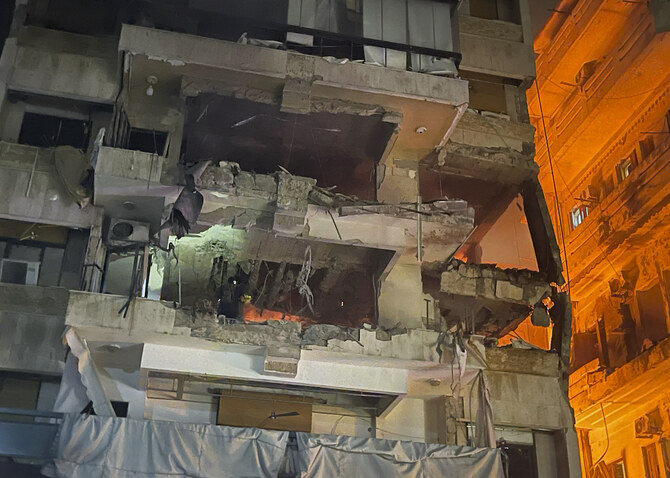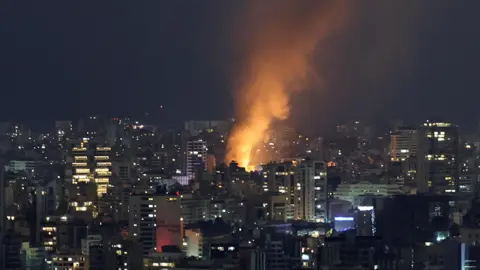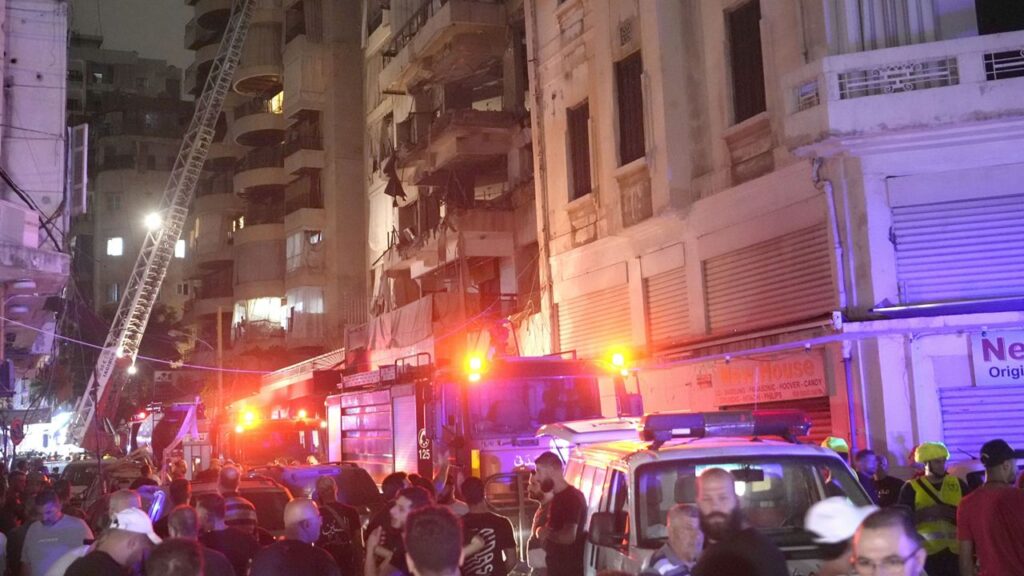Israeli air strikes on central Beirut have resulted in 22 deaths and 117 injuries, Lebanon’s Health Ministry reported on Thursday. The attacks, which targeted the Bachoura district, a predominantly Shia area of the Lebanese capital, mark a significant escalation in the ongoing conflict between Israel and Hezbollah.

BBC reporters on the ground heard loud explosions echoing from the strike site in Bachoura. Rescue workers were observed digging through rubble, while numerous ambulances rushed the injured to the American University hospital.
Unconfirmed media reports suggest that the apparent target of the strikes was Wafiq Safa, brother-in-law of Hezbollah leader Hassan Nasrallah and a high-ranking security official within the organization. Hezbollah’s media office has not yet commented on these reports.
The attacks on Beirut come after two days of relative calm in the capital, which had experienced intensive strikes in recent weeks. This marks the third time Israel has conducted air strikes on Beirut outside of the Dahieh suburb, an area repeatedly targeted for its association with Hezbollah commanders and munitions caches.

One eyewitness, who wished to remain anonymous, told reporters that the building hit was entirely residential, standing four or five stories tall. The woman, who was in an adjacent building at the time of the blast, reported that one of her relatives was being treated for head injuries.
These strikes coincide with an incident in southern Lebanon where two Indonesian UN peacekeepers were injured when an Israeli tank fired at a watchtower. The United Nations Interim Force in Lebanon (Unifil) reported that an observation tower at their base in Naqoura was directly hit, causing the peacekeepers to fall.
The UN has accused Israeli forces of “repeatedly hitting” UN positions in the last 24 hours, including deliberately targeting cameras and lights at two other Unifil bases. The Israeli Defense Forces (IDF) stated that their troops fired from the area around the base after ordering base members to remain in “protected places.”

Unifil, established in 1978 to monitor hostilities and ensure humanitarian access in southern Lebanon, currently has around 10,000 military peacekeepers from 50 countries, with Indonesia contributing the largest contingent of over 1,200 troops.
The situation remains tense, with Hezbollah claiming to have fired rockets at Israeli soldiers on the ground and using guided missiles to destroy a tank near Naqoura. Israel reportedly has four divisions of soldiers fighting inside Lebanon as part of its ground operations against Hezbollah, which began on September 30.
These events unfold against the backdrop of ongoing regional hostilities that have escalated since Hezbollah began firing rockets into northern Israel on October 8, 2023, following Hamas’s attack on southern Israel. The conflict has led to widespread displacement, with Lebanon’s government reporting that up to 1.2 million people have fled their homes over the past year.



